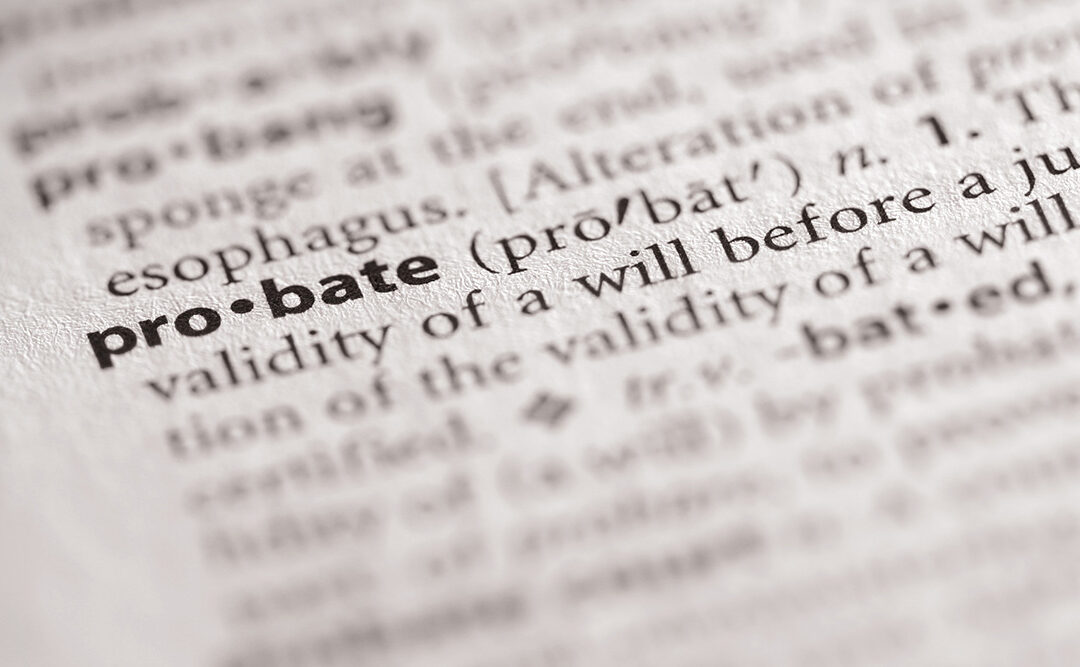Serving as an executor can feel overwhelming, especially at the beginning of the probate process. Knowing which questions to ask can help you clarify your responsibilities, avoid common mistakes, and get organized for the tasks ahead.
Here’s a guide to some of the most essential questions to ask as you embark on this important role.
1. What Are My Legal Responsibilities as an Executor?
- Why it matters: The role of executor comes with legal obligations, including fiduciary duties, which mean you must act in the estate’s best interest. Understanding these responsibilities upfront will help you avoid accidental mistakes that could lead to legal complications.
2. What Is the Estimated Timeline for the Probate Process?
- Why it matters: Probate can take anywhere from a few months to over a year, depending on the estate’s complexity. Knowing the likely timeline helps you plan and manage expectations for yourself and beneficiaries.
3. What Assets Need to Go Through Probate?
- Why it matters: Not all assets require probate. Knowing which assets need to go through probate (versus those that don’t, like jointly owned property or assets with designated beneficiaries) helps streamline the process and minimizes unnecessary legal work.
4. Do I Need to Hire a Probate Attorney?
- Why it matters: Depending on the complexity of the estate and state laws, having a probate attorney can be essential. Ask about the legal requirements in your jurisdiction and consider the potential benefits of professional legal support.
5. How Will Debts and Liabilities Be Handled?
- Why it matters: Executors must identify and prioritize debts, which can impact how assets are distributed. Asking how to handle debts helps prevent issues with creditors and ensures that liabilities are managed appropriately.
6. What Are the Tax Obligations for the Estate?
- Why it matters: Estates often have tax obligations, including estate taxes and income taxes on certain assets. Understanding these helps you prepare for tax filings and ensures you’re meeting all financial obligations of the estate.
7. Are There Specific Wishes or Directives in the Will Regarding the Estate?
- Why it matters: Familiarizing yourself with any specific directives in the will is essential, as these wishes take precedence over general asset distribution plans.
8. What Documentation Do I Need to Gather?
- Why it matters: Executing an estate requires a wide range of documents, including the death certificate, will, asset records, and debts. Knowing which documents to gather helps you stay organized from the start.
9. Are There Any Family Dynamics I Should Be Aware Of?
- Why it matters: Being prepared for potential family dynamics or conflicts can help you navigate discussions and ensure a smoother probate process. Understanding these dynamics upfront helps you mediate more effectively if issues arise.
10. What Are My Options for Communicating with Beneficiaries?
- Why it matters: Clear communication is critical for maintaining transparency and trust. Ask about the best ways to keep beneficiaries informed and manage their expectations throughout the process.
11. How Are Executor Fees and Reimbursements Handled?
- Why it matters: Executors are often entitled to fees for their services, and expenses incurred may be reimbursed. Clarifying this early on prevents misunderstandings and ensures you are properly compensated.
12. What Happens If the Will Is Contested?
- Why it matters: Understanding the process for a contested will helps you prepare and understand your responsibilities if disagreements over the will’s validity arise.
13. How Should Digital Assets Be Managed?
- Why it matters: Digital assets (online accounts, social media, etc.) need to be managed and, in some cases, closed. Knowing the best practices for handling digital assets ensures nothing important is overlooked.
14. Are There Any Trusts or Special Instructions in the Estate Plan?
- Why it matters: Some estates include trusts or specific instructions. Being aware of these provisions helps you understand your duties and any special considerations.
15. What Are the State’s Probate Requirements?
- Why it matters: Probate laws vary by state, and understanding the specific requirements for your state helps you stay compliant and avoid delays.
16. What Can Be Done to Speed Up the Probate Process?
- Why it matters: Certain actions, like identifying non-probate assets, can expedite the process. Knowing these can help reduce the probate timeframe.
17. Are There Professionals Who Can Help with Valuing and Liquidating Assets?
- Why it matters: Estate valuation often requires professional appraisals, particularly for real estate and unique items. Understanding when to bring in an appraiser ensures you meet valuation requirements.
18. How Should Personal Property Be Distributed?
- Why it matters: Personal items often carry emotional value, and distribution can be tricky. Knowing how to approach this process can help you manage it more smoothly.
19. Are There Any Environmental or Maintenance Considerations for Estate Properties?
- Why it matters: Properties need upkeep during probate, and there may be environmental concerns or maintenance needs to address. Being aware of these helps you maintain the property value.
20. What Are the Final Steps for Closing the Estate?
- Why it matters: Once all tasks are completed, there are final steps for formally closing the estate. Knowing these helps ensure a seamless and legally compliant completion.
Having these questions ready will provide clarity as you step into your role, allowing you to effectively manage the estate and honor your loved one’s legacy. Taking on the role of executor can be a complex journey, but having the right guidance can make all the difference.
As a realtor experienced in probate real estate, I’m here to support you at every step. Whether you’re managing property sales, need connections to trusted professionals, or simply want guidance through the nuances of the probate process, I’m here as a resource to ease your responsibilities. Reach out anytime to discuss how I can assist you in making informed, confident decisions as you navigate this important responsibility.

